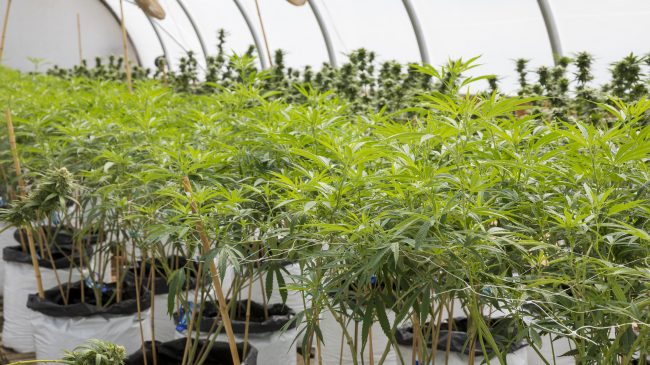News and Opinion
Analysis by researchers at Reason Foundation and Harvard University finds that states permitting adult-use of recreational marijuana tend to have fewer vaping-related lung injuries, suggesting that legalizing marijuana could be a partial solution to reducing vaping illnesses.
The Center for Disease Control started a panic over legal vaping products, only to later say vaping-related illnesses were primarily caused by black market THC products containing vitamin E acetate, which is found only in illicit products.
Despite the increased legalization of cannabis in the US, the FBI’s latest crime data release shows arrests for drugs increased in 2018.
Some doctors and researchers think that the risk of psychosis from marijuana is low and research into other areas of cannabis science and policy should be prioritized.
Legislation, Regulation, and Markets
One Kentucky state representative is proposing legalizing marijuana and using the subsequent tax revenue to pay down unfunded pension liabilities.
Michigan’s recreational cannabis market opened recently and is experiencing high demand. The legislature is also considering forcing marijuana businesses to reach labor peace agreements.
Illinois, which also recently opened its recreational market, is already experiencing shortages.
Illinois also made changes to its cannabis law related to the expungement of past marijuana crimes, banking, DUI policy, and more.
Some of Massachusetts’ recommendations for determining marijuana-impaired driving have little or no connection to driving while impaired by THC. Roadside sobriety assessments conducted by drug recognition experts remain the best option.
Nevada’s flawed marijuana licensing process has led to corruption and lawsuits.
Evidence
A time-series analysis from Washington state and Colorado finds “no significant” increase in crime after marijuana legalization.
In a simulated driving experience, researchers found that smoking cannabis led to an acute decrease in driving speed but otherwise had no significant acute or residual impacts on driving performance.
After controlling for pre-use cognitive ability, researchers from the University of Colorado found that regular cannabis use has no significant impact on cognitive ability.
Johns Hopkins researchers find cannabis products are typically advertised in six major categories: psychoactive effects, physical effects, social effects, sensory profile, therapeutic and curative claims, and negatives/warnings. However, the researchers also conclude, “Online cannabis retailers are making potentially unsubstantiated product claims.”
A new study claims extreme binge drinking at your 21st birthday party can cause permanent brain matter damage.
An estimate of e-cigarette use in 2019 suggests that roughly 27 percent of high schoolers and 10 percent of middle school students vape e-cigarettes. Among those who vape, only 18 percent reported regularly engaging in the behavior.

